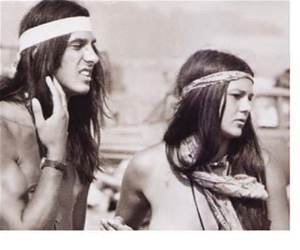Mike Webb was one of only four graduate students to earn an M.F.A. in directing from Michigan State–too tough for most. They had recruited him at Milwaukee Repertory and wanted a stage manager with experience. Mike wanted a graduate degree in directing.
So Frank Rutledge, Chairman of the program at Michigan State, said, “Nobody’s completed it in 14 years, but you’re welcome to try.”
Mike has never avoided a challenge, evident since 1085 when he became head of theatre at Rock Valley College in Rockford, Ill.
Mike and I lunched at Mary’s Market Bistro on Perryville in Rockford. I was late, so Mike had eaten. Too bad. I love Mary’s. But I grabbed a juice and got right to our chat. 
“There’s been a lot of press about Starlight Theatre,” I began, knowing that back then this landmark in architecture and Rockford theatre was making news in the post-September 11 depression, felt heavily in Rockford.
“There’s always a little jealousy,” he said. “Starlight couldn’t have been done anywhere else int he world, because of the people who came into the project, when they came into it, and how it was going to be done. The community needed a shot in the arm, something to believe in. Basically, what happened, the building was named for Bengt Sjostrom. He had passed away back in 1983. they went to the brothers and said, “we don’t want your money; we just want your expertise. They built the original seating bowl for nothing.”
“It’s about community.” I echoed.”
“It’s a 100 percent about community. The reason everybody got involved. We were ahead of the curve on technology. I called Jeanne Gang, such a cool architect (and) said it would be really nice if we could open the roof. She had friends. She was in New York and went to Tim Macfarlane, the famous London architect.,” he explained.
“I just wanted a roof over the audience. I didn’t want to have to stress over rain anymore. Time did a pencil sketch, showing how it could work, but told her, ‘You won’t be able to afford me.’ He didn’t take a fee.”
“You evoke heart from people,” I said.
“I gave up so much for this: time, energy. I didn’t get extra money for this. You think $12 million is a lot of money. It’s not a lot of money when you look what we got out of it.”
Mike searched for the right words. When they were shoring up the roof, there was a problem. They sent it to Tim.
“He said, ‘I made a mistake. Don’t worry about it. I’ll make this right. I’ll take care of the whole thing.’”
Sjostrom shored up the roof; Macfarlane paid the bill.
“It was a huge bill, out of his own pocket, and he didn’t take a fee in the first place. That’s the story! That should be celebrated, triumphed!”
One school day, there were people in the building.
“I walk out and it’s Tim, in from London. He said, ‘Are you happy?’ I said, I’m thrilled. He said, ‘It’s beautiful.’”
Tears welled up in Mike’s eyes because of this man who had given so much and on top of it gave even more.
“Is your life about Starlight?”
“Yes, and family. I’ll give casting priority to somebody whose parent wants to be in a show with a child who has a dream of performing. Putting family into a positive thing that’s not watching television. Creating something to give back to the community is really important.
“I bought a rock. It’s right as you walk in the main door. In each tier are the names of the people who poured their heart and soul into Starlight. As people came into the project, key people, their names went in. In the bottom bracket are the workers who gave so much of themselves. For example, Joe Maring (Schoenings), had been working hard on painting, getting the colors right. The weather wasn’t cooperating. I was walking with him and he said, ‘I’m going to be able to tell my grandchildren that I helped with this building.’ I said, Joe, I can do you one better. Come here.
I pointed to the rock, and all the sudden he sees his name, and tears were coming down his face. It was real important to thank these people.”
Mike continued, “In the middle of construction, Sjostrom wanted rocks from the original buildings. Now, ever single one of those guys who never went to live theatre at all are buying season tickets. Not only that, they’ve become donors. These are the coolest people on the entire planet, giving money to a theatre they believe in.
I can die a happy person, because that is exactly what I’m all about–giving people’s lives meaning.”
P.S. Mike Webb has since retired from his career, and has left a wonderful legacy, not only for Rockford, but for all who will ever visit this amazing outdoor theatre.







































